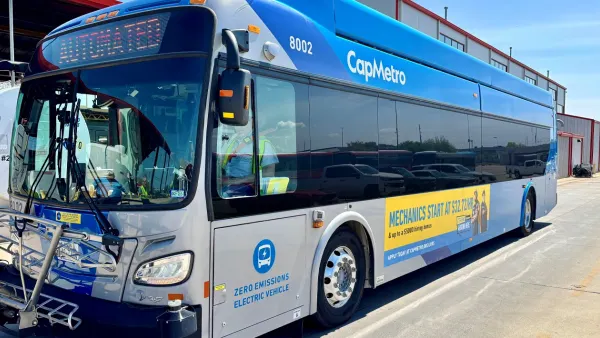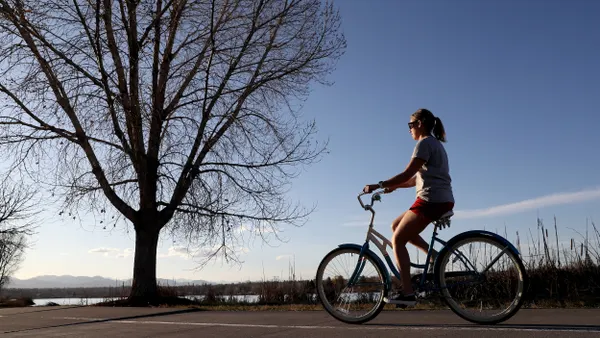Dive Brief:
- Miovision last week unveiled the "World's Smartest Intersection" in Detroit, a system of sensors, 360-degree cameras, connected traffic signals and remote monitoring capabilities that can respond to what's happening on the road in real time.
- The technology — a combination of hardware and software — can trigger instant stoplight responses to activity such as emergency vehicles trying to get through, and can alert drivers in connected cars of unexpected hazards, like jaywalkers.
- The technology is built on open architecture and artificial intelligence, which enables Miovision to add new applications to the system. "This corridor is a great example of how cities can leverage existing infrastructure to build innovative solutions that immediately benefit people," Mark de la Vergne, Detroit’s chief of mobility innovation, said in a statement.
Dive Insight:
This smart intersection has been gaining attention in Detroit since early this year. In April, the city won an IDC Smart Cities North America award for this project — IDC said the intersection technology will "serve as the backbone of the city’s smart city strategy" — and since rolling out the initial stages of the tech, Detroit has seen travel times reduced by 30%.
Considering Detroit's reputation as the "Motor City" and its proximity to markets like Ann Arbor, where the University of Michigan's MCity has tested AV technologies since 2015, Detroit is an appropriate location for this type of transportation initiative. Though Detroit does not have the most notable reputation as a smart city, Miovision explained the city has remained resilient and dedicated to improving its infrastructure. "Most of us think we know the story of Detroit. But, behind the headlines lies a city in complete transition. A city that honors the ones who stayed behind and those who work to rebuild what was lost," the company wrote.
And while Detroit is not a Vision Zero city, the state of Michigan does practice its own "Toward Zero Deaths" statewide safety campaign, which is sure to benefit from this technology in Detroit. The city has also undergone redesign and repairs along much of its roadways and sidewalks to increase safety and traffic flow, and integrate connected car capabilities.
Of course there's much improvement that can be done in Detroit to advance the city toward an even smarter future; it was recently ranked as one of the "worst connected cities" in the U.S. due to its lack of fixed broadband, and its public education system is suffering from a drastic drop in enrollment. Initiatives like the "World's Smartest Intersection" can help to get the city back on-track and boost its reputation as a home of innovation.











